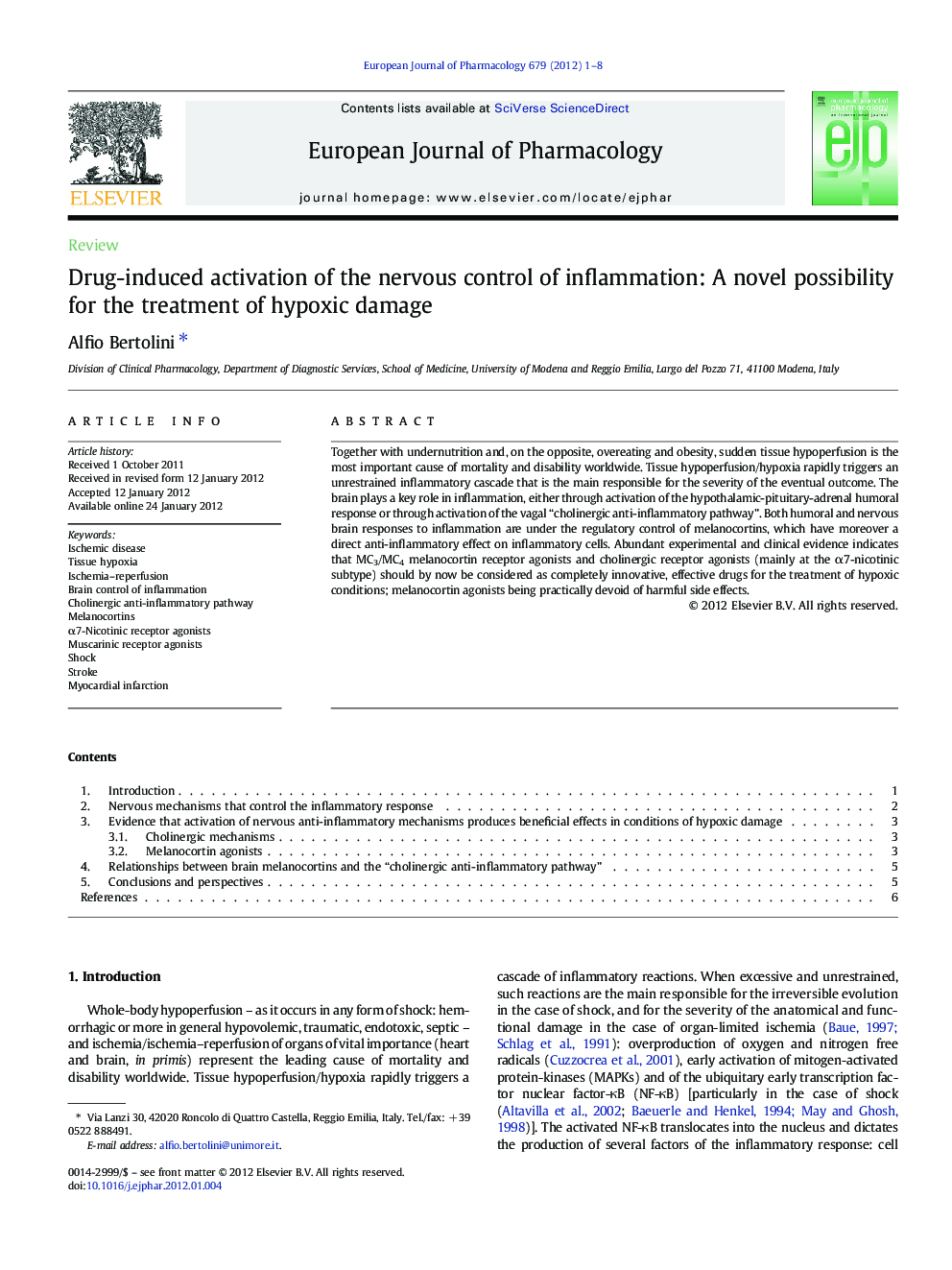| Article ID | Journal | Published Year | Pages | File Type |
|---|---|---|---|---|
| 5829751 | European Journal of Pharmacology | 2012 | 8 Pages |
Together with undernutrition and, on the opposite, overeating and obesity, sudden tissue hypoperfusion is the most important cause of mortality and disability worldwide. Tissue hypoperfusion/hypoxia rapidly triggers an unrestrained inflammatory cascade that is the main responsible for the severity of the eventual outcome. The brain plays a key role in inflammation, either through activation of the hypothalamic-pituitary-adrenal humoral response or through activation of the vagal “cholinergic anti-inflammatory pathway”. Both humoral and nervous brain responses to inflammation are under the regulatory control of melanocortins, which have moreover a direct anti-inflammatory effect on inflammatory cells. Abundant experimental and clinical evidence indicates that MC3/MC4 melanocortin receptor agonists and cholinergic receptor agonists (mainly at the α7-nicotinic subtype) should by now be considered as completely innovative, effective drugs for the treatment of hypoxic conditions; melanocortin agonists being practically devoid of harmful side effects.
